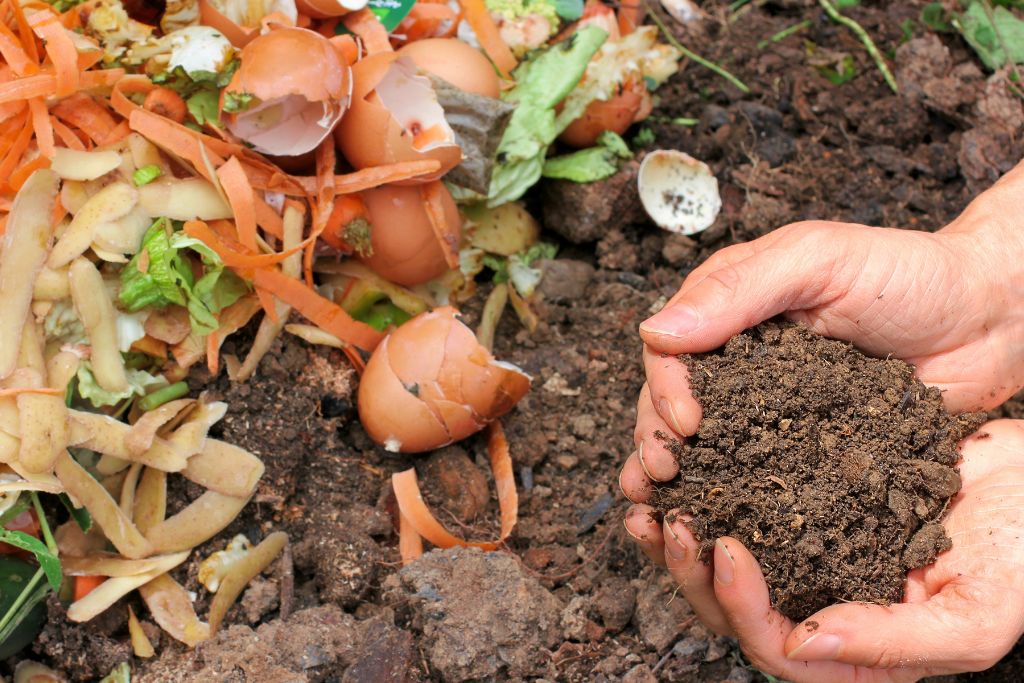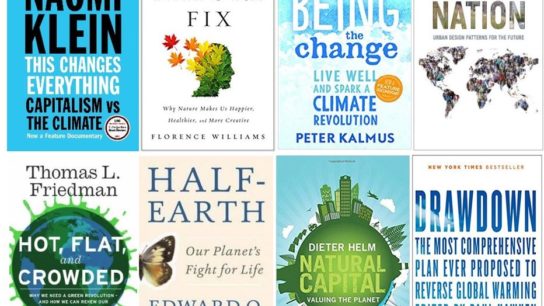Food waste has become one of the biggest environmental issues and contributors to greenhouse gas emissions. The food we throw away releases huge quantities of methane gas, which is 25 times more potent than carbon dioxide. Besides contributing to climate change, food loss is a waste of the natural resources that were used to produce it, including energy, water, and fuel. There are currently more than 800 million people facing hunger worldwide and yet, about one-third of global food supplies are wasted or lost. Food companies are under greater scrutiny to reduce their carbon footprint and address the issues related to the industry. These innovative food waste startups are leading the change, and have come up with original solutions to solve this pressing matter.
—
11 Innovative Food Waste Startups
1. GreenPod Labs (India)
After working in the food science sector in the US for several years, entrepreneur Deepak Rajmohan moved back to India to start GreenPod Labs in a bid to alleviate food waste in his home country. Founded in 2019, the startup develops active packaging sachets which activate built-in defence mechanisms in fruit and vegetables to preserve their quality, and slow down the ripening process. The innovative idea is a much-needed postharvest solution to food waste, which is a huge problem for the Southeast Asian country. Despite being the second-largest producer of fruit and vegetables in the world, 40% of the fresh produce grown in India is lost before it reaches consumers.
2. CHOMP (Hong Kong)
Hong Kong-based app CHOMP is addressing food surplus in Hong Kong’s F&B industry while simultaneously offering a solution to food waste. Founded in 2020 by Carla Martinesi and Chris Wettling, this bilingual solutions-based app offers unsold food items from local bakeries and restaurants to consumers packaged in “mystery boxes” and at a discounted price. Yet, their mission does not end here. According to Wettling, education is key to changing the many misconceptions surrounding food surplus and helping reduce food waste, not just locally but all over the world. For this reason, CHOMP’s team is encouraging more dialogue between F&B businesses and customers by posting regular tips and advice on their Instagram page and is collaborating with local schools to raise awareness among younger generations.
You Might Also Like: Chris Wettling on Tackling Hong Kong Food Waste and Surplus, and CHOMP
3. FLYFARM (Singapore)
Co-founded by Constant Tedder and Andres Crabbe, FLYFARM brings to the market an innovative and sustainable method to produce insect protein. While current farming systems and protein production put tremendous pressure on our environment, the agri-tech company works closely with renewable energy-powered larvae farms that upcycle organic waste into high quality protein for animal feeds. Food waste and by-products coming from agriculture and food processing – such as organic waste from food beverage manufacturing processes and supermarket waste – are upcycled by harnessing the power of insects, the natural converters of organic waste in nature.
4. Kebony (Norway)
Headquartered in Oslo, Norway, Kebony is a global leader in modified wood manufacturing. Contrary to the food waste startups mentioned so far, this one focuses on using food waste to produce something different: softwood. Though this type of wood behaves differently from hardwood, Kebony has come up with an award-winning technology that uses waste coming from the food industry, modifying it to mirror the behaviour and characteristics of tropical hardwood, which is typically harder, stronger, and more durable. By doing so, besides making good use of food waste, the company is preventing deforestation and saving tons of greenhouse gas emissions.
5. Too Good To Go (United Kingdom)
Available in several European countries as well as in Canada and the US, this takeaway food app is fighting food waste by helping food stores sell their surplus food instead of throwing it away. Established in 2015 and served its first customer in 2016, Too Good To Go has since partnered up with big restaurants and food chains around the world to sell so-called ‘magic bags’ of goods at a discounted price. So far, the company claims to have saved over 52 million meals worldwide, enough to feed the entire population of South Korea.
You Might Also Like: How Does Food Waste Affect the Environment?
6. BIO2CHP (Greece)
Greek-based BIO2CHP utilises raw residual biomass feedstock from the agro-food industry – especially fruit waste, coffee grounds, and olive kernels – for small-scale, on-site electricity production. The waste-to-energy strategy has several advantages, from converting waste management costs into additional revenue to upgrading the environmental image and reducing the footprint of the end user. Established in 2017, the innovative startup received over one million dollars to fund its research and develop an award-winning technology that redefined the waste-to-energy system.
7. Ottan Studio (Turkey)
Ottan Studio has made a name for itself by converting food and garden waste into bio-composite material from which it makes furniture, decorative items, and wall panelling. Interior design items are commonly produced with wood and other raw materials, but the founder of this Turkey-based startup, Ayse Yilmaz, saw the marvellous potential of biological waste as raw material and came up with an innovative process to upcycle tons of discarded fruit peels, nutshells, and leaves and manufacture them into high-quality products.
8. TripleW (Israel)
Founded in 2015, Israeli startup TripleW developed a circular solution to the environmental and financial challenges of waste management. The company developed a process to convert abundantly available organic waste – from supermarket and industrial food surplus to municipal source-separated food waste – into feedstock for the production of polylactic acid (PLA bioplastic). This renewable and highly in-demand material can be used to manufacture thousands of products, from yoghurt cups and tea bags to t-shirts and toy blocks. Additionally, the company enables chemical recycling of biodegradable plastics back into their patented process, further reducing wastage.
9. Choco (Germany)
Ninth on our list of food waste startups is Choco. Founded in 2018, this Berlin-based food tech startup is on a mission to transform and fully digitalise the food industry’s business processes by 2026. With a network of more than 10,000 suppliers and 15,000 chefs, the app offers an efficient digital tool that replaces archaic processes such as pen-and-paper and manual spreadsheets that many foodservice businesses still rely on to order ingredients and record sales. It also claims to improve order accuracy, reducing mistakes and incorrect deliveries, thus ensuring that less food and money are wasted in the process. With a total of nearly USD$300 million in funding, Choco was able to rapidly expand its operations to serve markets in Germany, the US, France, Spain, Austria, and Belgium.
10. Fridgely (US)
Founded in 2015 by Justin Ehlert, a senior computer science major at the University of Texas at Dallas, the Fridgely app is a food expiration date tracker that alerts consumers when food is going to expire, allowing them to eat it before they go bad. Ehlert came up with this idea while living in an apartment with three other male college students and realising how much food the household wasted each week. In the US, the average family of four wastes about 25% of its food. Moreover, a staggering 80% of Americans throw away fresh produce and packaged products because they misunderstand expiration labels. Fridgely represents a unique opportunity to tackle this massive, though easily preventable, issue.
11. Replate (US)
San Francisco-based Replate is on a mission to reduce food waste and alleviate food insecurity in communities everywhere. The tech-based social enterprise redistributes donated surplus food from businesses to serve communities in need. The company leverages data, artificial intelligence, and agile programming to recover surplus food from vendors and deliver it directly to non-profit organisations in the area. In addition to this, Replate also offers monthly impact metrics for all donations to track the environmental and social impact of contributions, including total number of pounds donated, total number of meals this translates to, total gallons of water saved as a result of donations, and total pounds of CO2 diverted as a result of these donations.
You might also like: 5 Sustainable Plant-based Seafood Companies Leading the Way


















